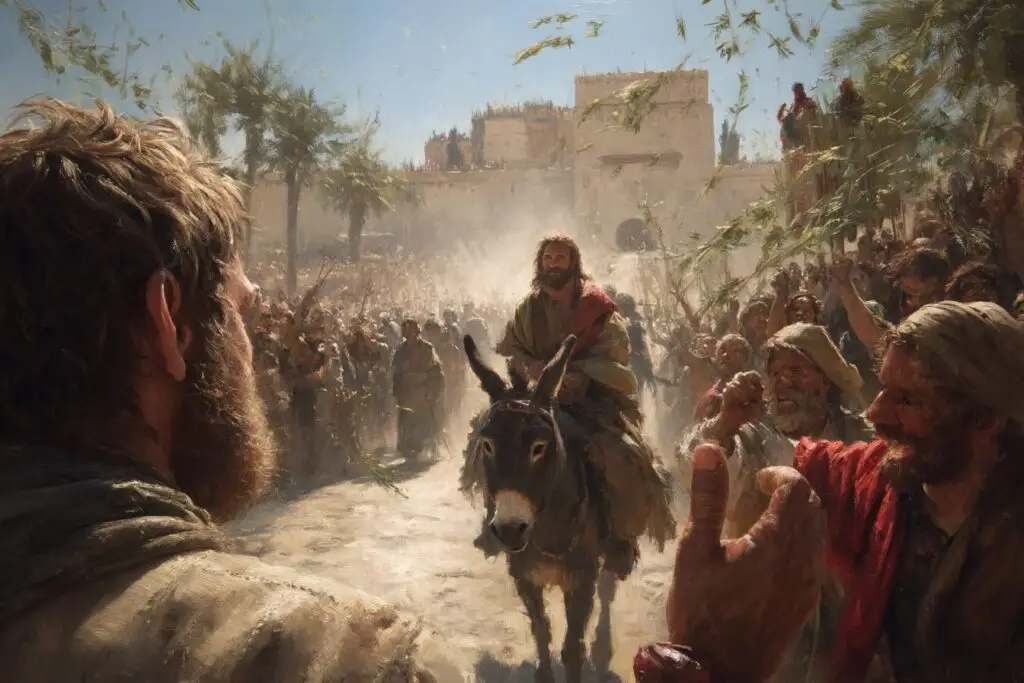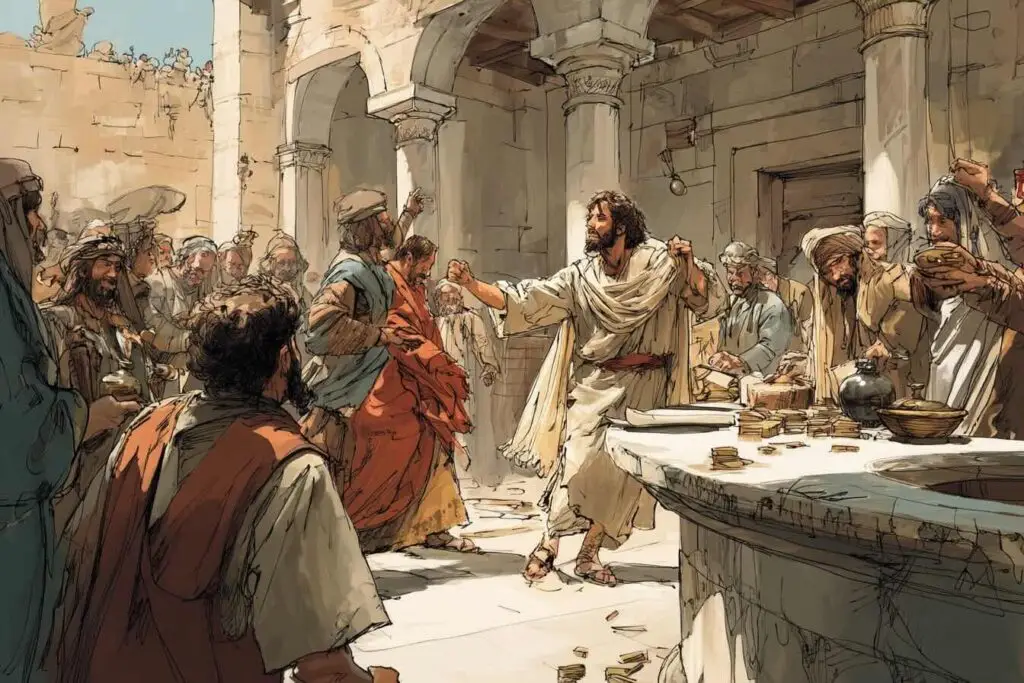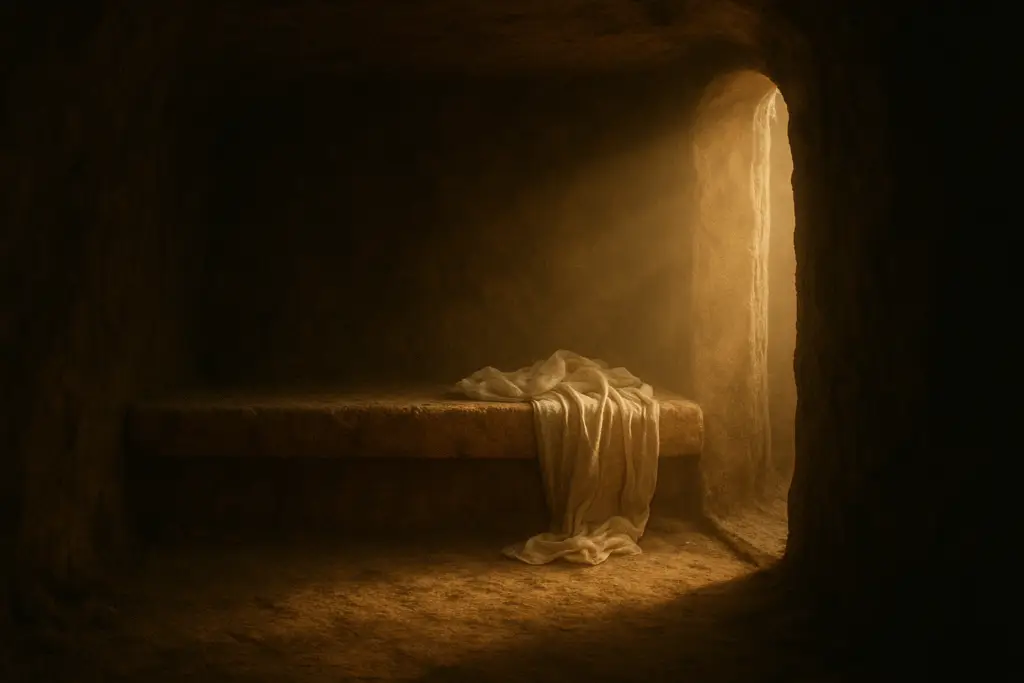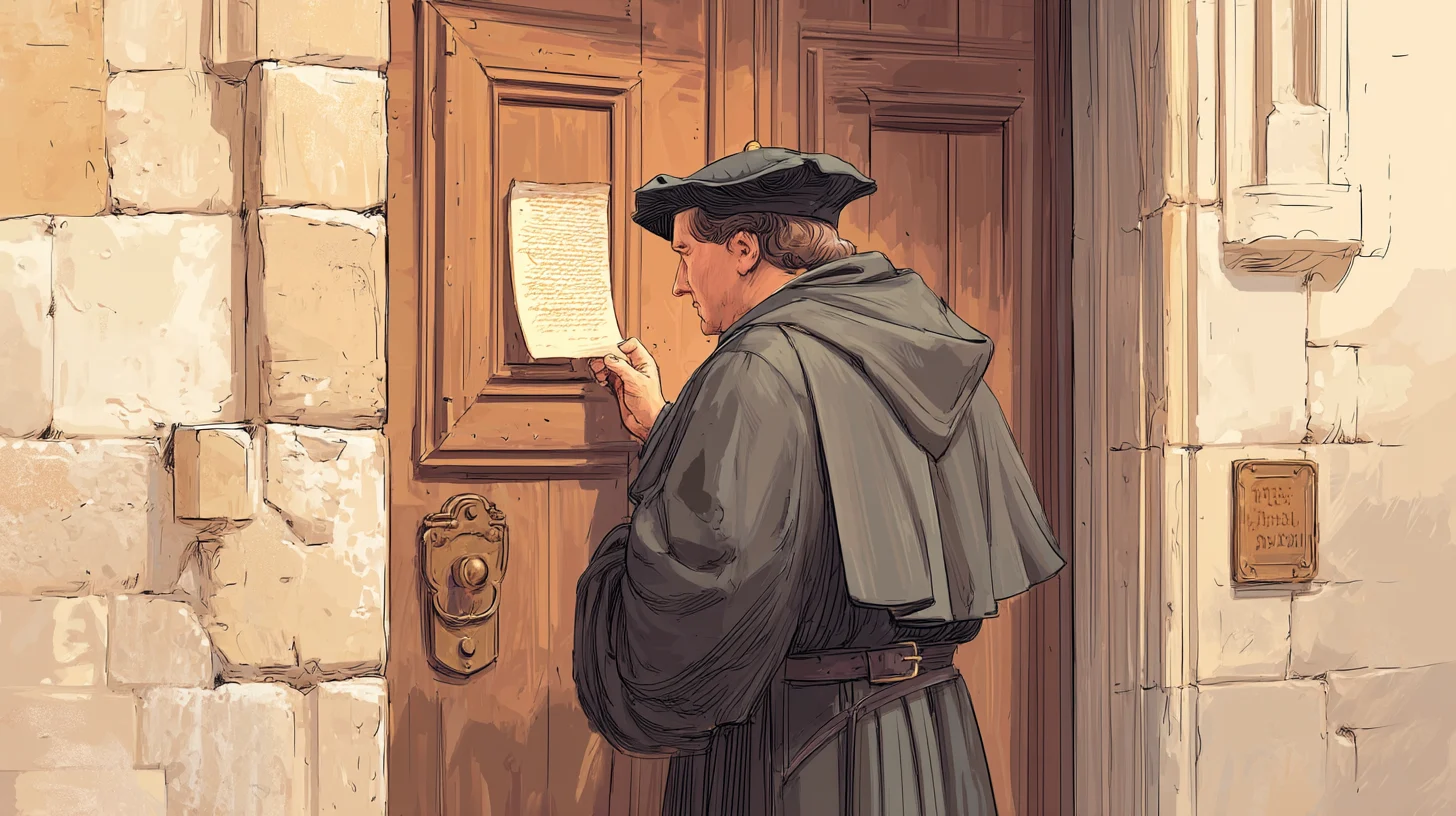Palm Sunday: The Humble King (Matthew 21:1-11)

Reflection: Jesus enters Jerusalem not as a conquering warrior but as the fulfillment of Zechariah’s prophecy—riding on a donkey, embodying humility even in his moment of royal acclaim. The crowds who greeted him with palm branches and shouts of “Hosanna!” recognized something of his kingship, yet fundamentally misunderstood its nature.
Devotional Practice: Consider the expectations you bring to your relationship with Christ. Do you, like the Palm Sunday crowds, acclaim Jesus while simultaneously expecting him to fulfill your predetermined ideas of how a Messiah should act? Take time today to surrender your expectations, asking instead for eyes to see Christ as he truly is rather than as you wish him to be.
Prayer: “Lord Jesus, as you entered Jerusalem amidst praise yet remained focused on your Father’s will rather than human acclaim, help me to seek your kingdom rather than my own agenda. Open my heart to receive you as you are, not as I imagine you should be. Amen.”
Monday: Righteous Indignation (Mark 11:15-19)

Reflection: Jesus enters the Temple and confronts the religious establishment by overturning the tables of the money changers. This act of prophetic demonstration revealed his zeal for authentic worship and his opposition to systems that exploited the vulnerable under the guise of religious obligation.
Devotional Practice: The Temple cleansing invites us to examine the “tables” in our own hearts that require overturning. What practices, attitudes, or compromises have we allowed to take root that diminish true worship? Where have we been complicit in systems that oppress rather than liberate?
Prayer: “Purifying God, your Son demonstrated that worship must be authentic and just. Examine my heart today, overturning whatever prevents my full devotion to you. Give me courage to confront injustice in myself and in the world around me. Amen.”
Tuesday: Authority Questioned (Matthew 21:23-27)
Reflection: Religious leaders challenge Jesus’ authority, seeking to undermine his growing influence. Rather than defensive posturing, Jesus responds with wisdom that exposes their true motives while remaining firmly grounded in his divine mission.
Devotional Practice: Reflect on how you respond when your faith or values are questioned. Do you become defensive, or can you, like Jesus, respond with grace while remaining rooted in truth? Consider a recent situation where your beliefs were challenged and imagine how Jesus might have responded in your place.
Prayer: “God of wisdom, when Jesus faced opposition, he responded with confidence and discernment. Grant me similar clarity and peace when my faith is questioned. Help me to be secure enough in your love that I need not react defensively to those who challenge me. Amen.”
Wednesday: The Betrayal Arranged (Matthew 26:14-16)
Reflection: In the shadow of growing conflict, Judas arranges to betray Jesus. This day is sometimes called “Spy Wednesday,” marking the moment when betrayal is set in motion. The contrast between Mary’s lavish devotion (John 12:1-8) and Judas’s calculated betrayal highlights the divergent responses to Jesus.
Devotional Practice: The seeds of betrayal often grow in the soil of disappointment and unmet expectations. Consider where you might be harboring resentment toward God for ways you feel let down or disappointed. Bring these honestly before God, asking for the grace to choose faithfulness even amid disillusionment.
Prayer: “Faithful God, when Judas chose betrayal, he surrendered to darkness rather than bringing his doubts into the light of your love. Help me to acknowledge my disappointments and bring them honestly before you rather than allowing them to separate me from your presence. Amen.”
Maundy Thursday: Servant Love (John 13:1-17, 34-35)
Reflection: At the Last Supper, Jesus establishes the Eucharist and demonstrates servanthood by washing his disciples’ feet. He gives them the mandate (Latin: “mandatum,” hence “Maundy”) to love one another as he has loved them. Later, in Gethsemane, Jesus surrenders completely to the Father’s will despite his anguish.
Devotional Practice: Practice an act of humble service today, preferably something you would normally consider beneath your dignity. As you serve, reflect on how Jesus’ example calls you beyond comfortable forms of giving to the vulnerable gift of presence with those society overlooks.
Prayer: “Lord who kneels, you showed that true greatness lies in service and that love is made perfect in vulnerability. Give me courage to follow your example of foot-washing love. In those moments when surrender feels impossible, strengthen me as you were strengthened in Gethsemane. Amen.”
Good Friday: The Ultimate Sacrifice (John 19:1-42)

Reflection: This darkest day of the Christian calendar confronts us with the depth of human sin and the even greater depth of divine love. Jesus’ seven last words from the cross reveal his compassion, suffering, and ultimate trust in the Father even amid apparent abandonment.
Devotional Practice: Spend time today in silent reflection on the crucifixion narrative. Consider reading the accounts from each Gospel slowly and contemplatively. Place yourself among the witnesses at Calvary. With whom do you identify? The faithful few who remained? The mocking crowds? The indifferent soldiers? The penitent thief?
Prayer: “Crucified Redeemer, today I stand before your cross in humility and gratitude. Your suffering reveals both the depth of human sin and the greater depth of divine love. Help me to embrace the paradox that in your dying is our living, in your weakness is our strength. Amen.”
Holy Saturday: The Waiting Darkness (Matthew 27:57-66)
Reflection: This often-overlooked day represents the time of waiting, when hope seems buried and God appears silent. The disciples huddled in fear, their expectations shattered, unaware that redemption was already at work beyond their sight.
Devotional Practice: Holy Saturday invites us to acknowledge the “tomb times” in our own spiritual journey—seasons of apparent divine absence when faith continues despite feelings of abandonment. What situation in your life feels like a Holy Saturday experience? How might you practice faithful waiting even without visible evidence of God’s activity?
Prayer: “God of the tomb, on this day of waiting, I bring before you those areas of my life that feel characterized by absence and silence. When I cannot sense your presence, strengthen my trust that you continue to work beyond my perception. Help me to wait in hope for the resurrection I cannot yet see. Amen.”
Easter Sunday: Death Defeated (Matthew 28:1-10)

Reflection: The impossible becomes reality as death is conquered and hope reborn. The women who come to mourn become the first evangelists as they encounter the risen Lord. The resurrection is not merely a happy ending but the radical transformation of reality itself—a new creation breaking into the old.
Devotional Practice: Resurrection is not simply a historical event but a present reality that infuses all of life with hope. Identify one area in your life that feels dead or hopeless, and prayerfully imagine Christ’s resurrection power flowing into that situation. What would resurrection look like in that context?
Prayer: “Risen Christ, your victory over death transforms everything! Nothing is beyond your redemptive reach. Fill me with resurrection hope that sees possibilities where the world sees only endings. Make me a witness to your living presence, carrying your life-giving power into every darkness I encounter. Amen.”
Living the Resurrection Life
The Holy Week journey does not end with Easter but continues as we learn to live as resurrection people in a Good Friday world. The disciples’ transformation—from fearful hiding to bold proclamation—reveals what becomes possible when we truly embrace the reality of Christ’s victory over death.
Each year, this sacred journey invites us deeper into the mystery of faith. We recognize ourselves in the disciples’ failings, the crowd’s fickleness, and even Judas’s betrayal. Yet we also discover ourselves in Mary’s devotion, the Beloved Disciple’s faithfulness, and the wonder of those first witnesses to resurrection.
The road from Palm Sunday to Easter teaches us that there is no resurrection without crucifixion, no victory without surrender, no new life without the courage to let the old die. As we walk this path year after year, may we be increasingly formed into people who embody the hope of Easter in a world still marked by crosses.
And may we remember that the story continues—Christ is risen, Christ is with us, and Christ will come again to complete the work of new creation that began that first Easter morning.



